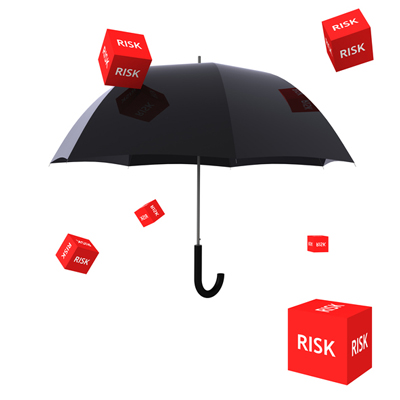 Most home stagers wonder whether they should get business insurance.
Most home stagers wonder whether they should get business insurance.
Your need for coverage will differ depending on the state, province and even country you live in. I can’t give specific advice that will apply to everyone.
You will need to speak with qualified local business insurance agents or brokers.
As a start, consider a business rider to your existing home insurance policy.
There are also specific insurance packages for home stagers available with different companies that you can ask your broker about.
Your Home Staging Business Insurance Should Cover
- General liability
- Fire liability
- Business property when it’s in your office and when it’s off premises or in transit
- Medical expenses
- Computer equipment
- Accounts receivable (though you won’t have any when you follow the Staging Diva Business Model since you’re getting paid as your service is delivered and getting upfront deposits)
- Home staging inventory (if you have your own)
If you’re providing your own home staging furniture or accessories (something I don’t recommend) ask how long they’ll insure your items when they’re off premises. And find out whether it matters if the home is vacant or lived in while your possessions are there.
I have heard of insurers who will only cover the items for 60 days. This is too short if you’re operating in a slow real estate market, or if the property takes longer to sell because it’s overpriced or not well-marketed.
Insurance is something you can be looking into while you take care of all the other steps necessary to start your home staging business.
Don’t let the fear of possibly damaging someone’s property one day get in the way of you becoming a home stager.
Every entrepreneur worries about liability at some point, and you can get coverage to protect you. It’s not terribly expensive. Especially if having it will give you the peace of mind to move forward as a home stager.
Don’t Let (Unlikely) Worst Case Scenarios Stop You
It’s also helpful to keep some perspective and not get overwhelmed with worry about worst-case scenarios that are not that likely to occur.
The typical things that might go wrong while you’re staging are things you wouldn’t likely bother making an insurance claim for.
For example, if you broke a vase, you would replace it. If you scratched a floor you would fix it. Now that doesn’t mean you have to put in a new floor! Have you ever had a mover scratch a hardwood floor? They fix it by coloring in the scratch with a marker designed for that purpose. That’s also what they do with scratches to furniture.
In the hundreds of homes I’ve staged, I’ve never run into a situation where I’ve broken something irreplaceable. Most of your clients will accept that if you damage something, you’ll take care of it.
Small things are more likely to happen than major catastrophes.
Don’t place breakables where they can be knocked over. Don’t leave candles burning when nobody’s home. Basically avoid anything that’s “an accident waiting to happen” and you’ll probably be okay.
When you follow the Staging Diva Business Model, you will NOT be hiring painters, movers, repair people, etc. directly. Which means you’re not taking on any liability for their work and you’re not taking on the role of a General Contractor. This is an important distinction!
Given that insurance premiums go up with any claim, you’re only going to make a claim for something significant. Anything else you’ll deal with directly with your clients.



The one piece of advice I give aspiring stagers is to get liability insurance and invest in contracts. I can’t stress those items strongly enough. While little things happen once in awhile – major catastrophes only have to happen once to potentially wipe out your small business. Especially for those stagers who have “teams” they work with which include contractors, painters, landscapers, cleaners and more. Check out the Ontario Health & Safety Act and be aware of what role you take in any staging/renovation project.
Well, in the province of Quebec where I come from, it’s important that you be insured as a home stager. Not only do you need insurance for your home staging tools, equipment, etc., if they are stolen (from your office, home or car, for example), but you need civil liability insurance to at least the tune of one million dollars coverage. As Heather Cook said above, it only takes one catastrophe to wipe out your business. And don’t forget, if your business is not incorporated, this means you can even wipe out your family, your family home, your investments, etc. You can be held personally responsible for damages caused to a client’s home, even if you didn’t do the work directly but hired a contractor instead. So, if you’re hiring contractors for your clients, you’ll want to get your clients to sign a contract that underlines the fact that you as a home stager CANNOT be held responsible for work done by a contractor.
Basically, cover yourself as much as you possible can. And if you plan on training anyone as a home stager, then you need to get insurance for that too because if you trained a home stager and you forgot to mention something important during training, the home stager makes a mistake because of it, well, basically, if that home stager gets sued, he or she can turn around and sue you themselves, saying you didn’t train them properly. So, you’ll need an insurance policy called “Error and Omission” coverage.
And imagine…. we’re in Canada which isn’t the most sue-happy country in the world… It’s never a bad idea to be insured because as we all know, accidents to happen. And you may just be moving a lamp from one table to the next room, but if you drop a tiffany lamp that is worth thousands of dollars, you’re in trouble. I prefer to be prepared instead of having to one day possibly pay. Insurance for home stagers isn’t all that expensive.
I have looked into insurance and have come up empty not being able to find a company that will insure a stager in Quebec. Do you know of a company I can contact?
Patricia, no I don’t have a Quebec insurance contact. I suggest you do very specific Google searches on your own.
Hi Patricia… I have insurance here in Quebec. You can contact the same broker that I use:
PMT Roy Assurance: http://pmtroy.rabaisassurance.com/index.fr.html
All the best of success to you!
Thanks for sharing that Pauline!
You’re more than welcome, Debra!
I would like to know how to go about buying home staging liability insurance. Which companies?
Detailed contact information for insurance is provided to Staging Diva Graduates inside our online discussion group. If you don’t have access to the Staging Diva Network because you’re not a Graduate, you can Google Home Staging Insurance.
Hi Debra,
Do you have liability insurance for your business? Is it necessary to get it if you reside in Toronto.
Menaka, I’m not a licensed insurance broker, accountant or lawyer so I can’t give you specific advice. It’s up to you to weigh the risks, costs and benefits based on your particular situation. The point of this article was to provide you with general information and considerations to help you ask the right questions when speaking with your own insurance agents, accountants and/or lawyers.